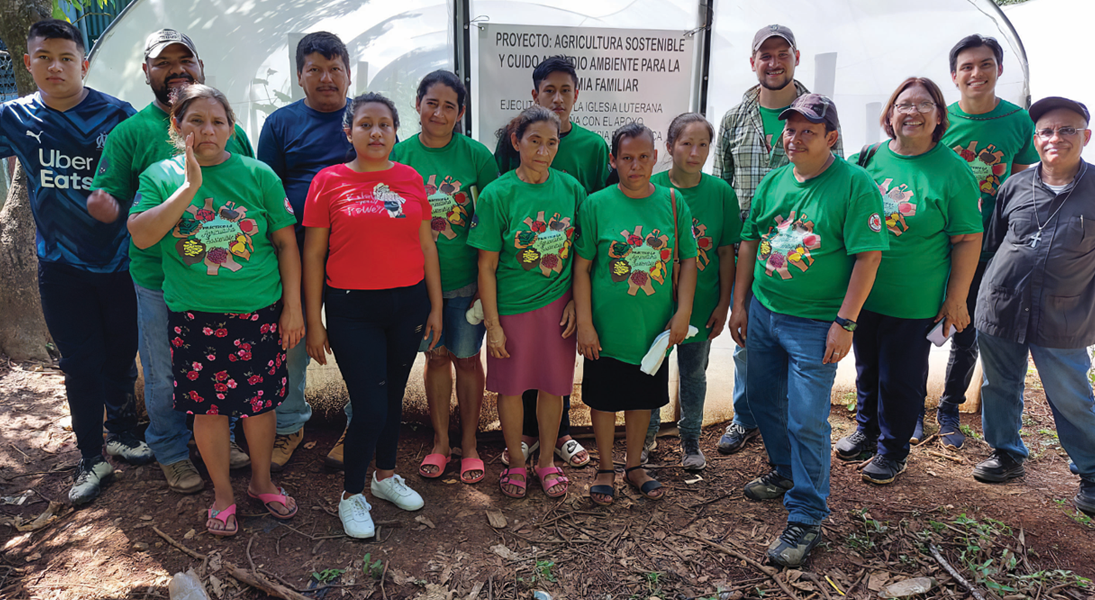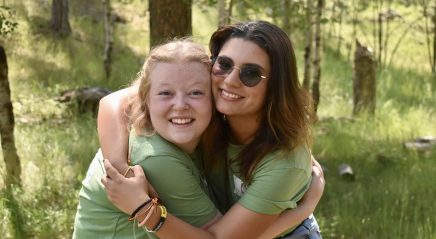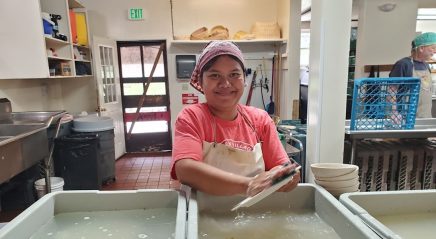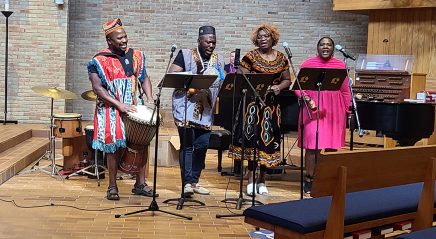For the last 35 years the ELCA has been a companion in the mission and ministry of five Lutheran churches in Central America:
- The Costa Rican Lutheran Church.
- The Salvadoran Lutheran Synod.
- The Christian Lutheran Church of Honduras.
- The Augustinian Lutheran Church of Guatemala.
- The Nicaraguan Lutheran Church of Faith and Hope.
Through these relationships, ELCA members have witnessed and learned about the holistic mission of these churches. Intrinsic to this mission is the strong relationship between, on the one hand, the message and ministry of the gospel and, on the other, the social, cultural and economic realities in the lives of these communities.
This holistic mission is being carried out through sustainable ministries focused on education, agriculture, migration, integral health, youth and family, care for creation and leadership formation. The churches’ ministries liberate and transform the daily reality of members and their communities, empowering them through a message of hope that proclaims the dignity of all in Jesus Christ.
Salvadoran Lutheran Synod (SLS)
For years Central America has suffered severe climate extremes, almost on an annual basis: hurricanes, floods, volcanic eruptions, droughts, earthquakes, etc. However, as a result of climate change, as well as such annual phenomena as “El Niño” and “La Niña,” these climatic events have become more intense, affecting harvests and quality of life.
The SLS has responded with a three-pronged approach with education based on science and Scripture; advocacy for the protection of natural resources; and direct support for communities whose main source of income is agriculture.
The church has equipped its leaders with the tools and materials to mitigate the effects of climate change, and the ELCA is accompanying this holistic effort with funds from both Mission Support (a diploma program in climate change for pastors and lay leaders) and ELCA World Hunger (advocacy and community greenhouses).
Christian Lutheran Church of Honduras (ICLH)
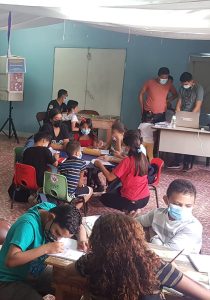
The Christian Lutheran Church of Honduras accompanies communities with education assistance. Here children are tutored by youth from the Camino de Emaus in Tegucigalpa.
The ICLH has a long trajectory accompanying communities in the field of education. In 2020 the government closed schools in response to the COVID-19 pandemic and moved toward classes on television, then online. Because many Honduran households lack a television, let alone an internet connection, many students couldn’t access their classes.
The church responded. In collaboration with the ELCA, the ICLH opened four tutoring centers in 2021 in communities where it has congregations and equipped them with internet access, a computer, a printer and tutors. Local schools sent their youth to these centers to do their classwork, and during the first year of the project more than 100 students across the four centers received tutoring.
Currently the ICLH has over 220 students at eight tutoring centers, where children can come three or four days a week. Often the tutors are youth from ICLH congregations who feel called to support their communities. Many of the students are now interested in studying to become educators, social workers, engineers or administrators.
Augustinian Lutheran Church of Guatemala (ILAG)
Accessing quality education in rural areas of Guatemala is often a challenge, particularly for young women. In conversation with congregations in these communities, and with support from the ELCA, the ILAG started Casa MILAGRO, a program for young women from across Guatemala to come together and receive specialized classes at the Lutheran Center in Guatemala City.
The hope is that, at the end of their classes, these young women will return to their communities with the skills to make a significant, positive impact.
At the Lutheran Center they take academic classes (literature, math, science, history), learn technical skills (agriculture, bread making, sewing), and continue their congregational life with music and confirmation classes.
This ministry is accompanied by the Saint Paul Area and Southeastern synods, alongside many companion congregations across the ELCA.
Nicaraguan Lutheran Church of Faith and Hope (ILFE)
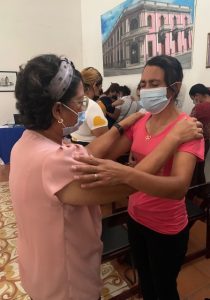
The Nicaraguan Lutheran Church of Faith and Hope has a focus on gender issues in its ministry. Here Salvadoran pastor Melba Martinez (left) prays with a woman from Somoto at an annual women’s retreat.
Throughout its history the ILFE has focused on gender in its holistic ministries, but more recently it has incorporated these components into all its projects so that both promoters and ILFE staff are trained in new understandings of masculinity. The staff and promoters are able to share in conversations with community members around masculinities and gender roles while working on agricultural programs, irrigation systems and raising livestock—all programs supported by ELCA World Hunger.
At a recent women’s gathering one participant shared that when she first attended the event six years earlier, she had to ask her husband for permission and be sure to leave everything ready at home (food for a few days, house cleaned, etc.). This was quite a challenge.
At this year’s gathering she thanked the male staff, the promoters and the pastoral body of the ILFE because her husband has grown more sensitive and aware of his privileges, taking an active role in household duties and supporting her growth spaces more. That has changed the family dynamic and set an example for their children.
In sharing the experiences of four churches in Central America, we invite ELCA members to reflect on how faith and action look in their congregations.



